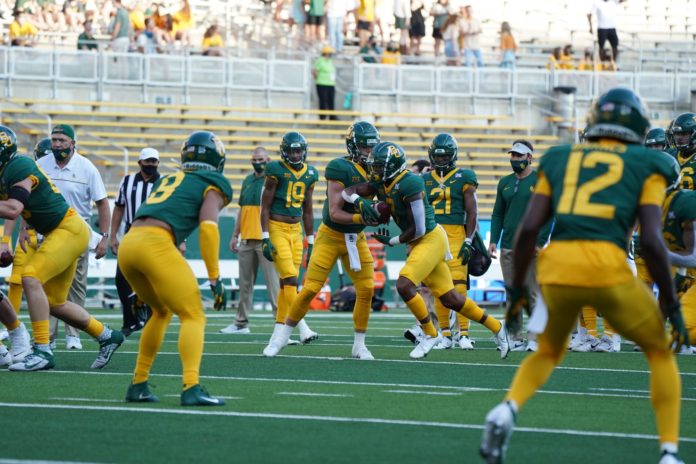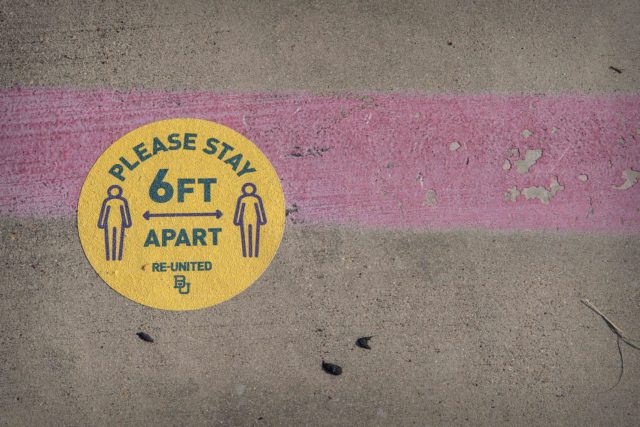
By Will Chamblee | Sports Writer
For the second time this season, contact tracing has come up as a problem for Baylor football, limiting its ability to practice and play.
Baylor suspended all football-related activities “to allow for further evaluation of recent [COVID-19] positive tests and the completion of close contact tracing” after 28 football players tested positive for COVID-19.
Baylor’s constant encounters with contact tracing has revealed that under the NCAA guidelines, contact tracing is too strict and constricting towards collegiate football programs.
The Centers for Disease Control and Prevention describes contact tracing as a method to find and alert those who have been in close contact with an infected person. The CDC defines close contact as “any individual who was within six feet of an infected person for at least 15 minutes starting from two days before illness onset until the time the patient is isolated.”
Baylor football has been following the CDC’s strict standard of contact tracing, as it is in accordance with local government and NCAA guidelines. These guidelines have been the source of many of Baylor’s troubles with COVID-19.
Contact tracing played a pivotal role in the postponement of the Houston game and while the Oklahoma State game would have been postponed regardless of contact tracing, it has affected Baylor’s ability to meet and practice.
But contact tracing’s unreasonable effect on Baylor football doesn’t stop there.
Following the announcement that Baylor’s game against Houston would be canceled, SicEm365 writer Colt Barber revealed that according to a source, at least one Baylor football player would have missed the Houston game due to contact tracing, despite testing negative five times in the last two weeks.
This specific example illustrates how the current contact tracing protocols are unnecessarily strict and cautious in their current iteration.

Dr. Kyle Goerl, chief medical director at Kansas State, said as much in an interview with AP News.
“CDC guidelines … those aren’t built for on-field scenarios, but they’re also not built for people who are being tested regularly,” Goerl said.
According to NCAA guidelines, players who come into close contact with an infected player are required to quarantine longer than the infected player, who is only required to quarantine for 10 days if they’ve gone at least three days without symptoms. Players who are identified by contact tracing are required to quarantine for 14 days.
To require a player to quarantine for 14 days after coming into close contact with an infected case, even after they have tested negative multiple times, is unnecessary and far too strict.
As Goerl said, the current NCAA and CDC contact tracing guidelines do not account for athletic departments that are able to fund multiple tests for players per week, which could allow players to ‘test out’ of contact tracing.
As it currently stands, the strict contact tracing rules pose the greatest threat to the cancellation or postponement of college football. What has happened to Baylor will begin to happen to many other teams across the country.
“How can we play the game of football and, with contact tracing, not lose the entire team?” West Virginia athletic director Shane Lyons asked in an NCAA video conference.
And while the health of the student-athletes should be at the forefront of every COVID-19 guideline, we must be careful to not be overcautious and prevent healthy players and teams from competing.
Contact tracing is a valuable asset to preventing the spread of COVID-19, but it is unnecessarily strict and needs a change to allow for college football to finish its season.





